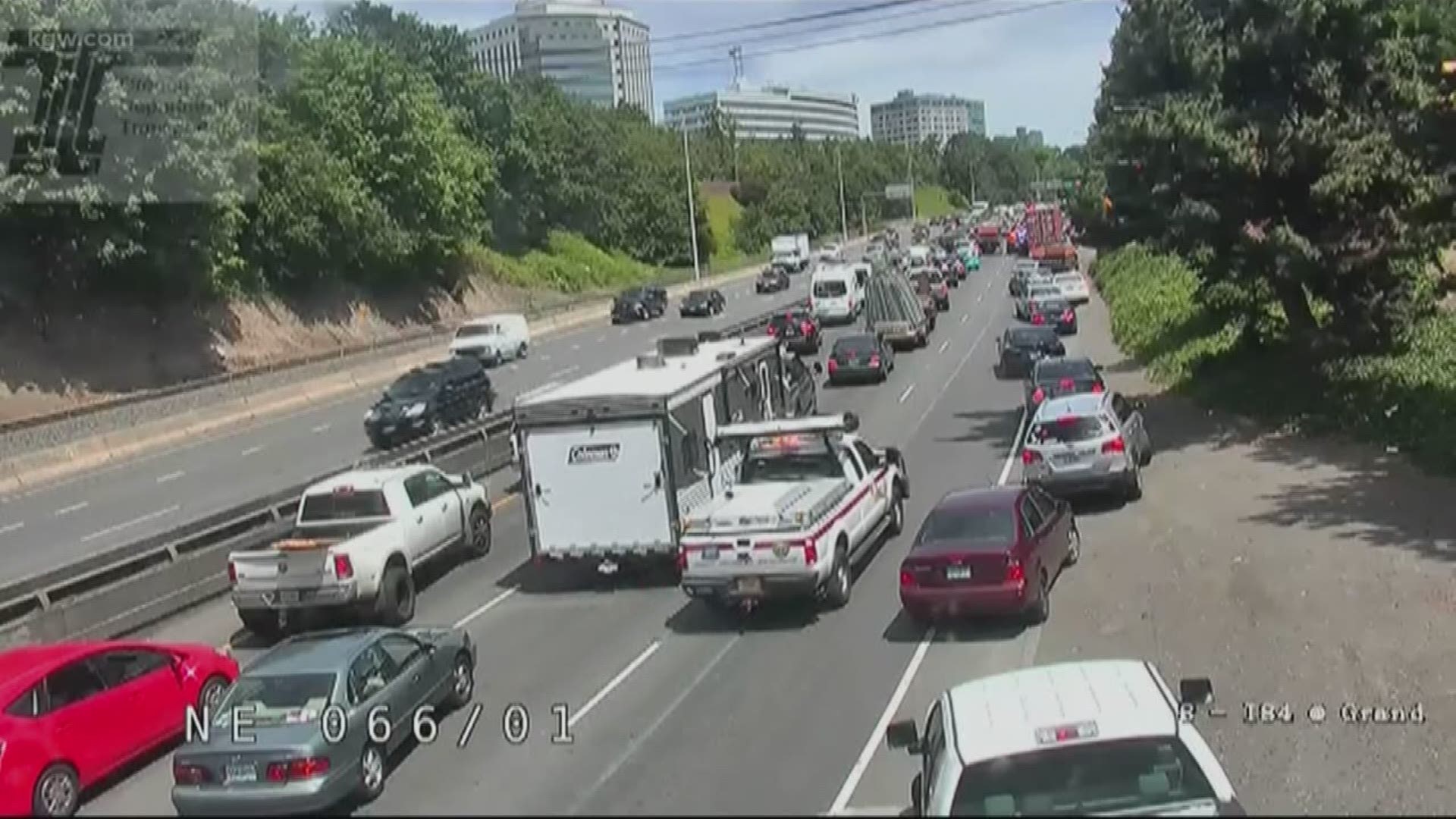PORTLAND, Ore. — Mental health crisis incidents are not necessarily increasing in Portland, but they are not slowing down either, according to Portland Police.
“Our ECIT officers are called upon every day. Sometimes it's not as drastic, sometimes it's not as public, but they are truly out there making a difference every day,” said Sgt. Brad Yakots with Portland police.
The ECIT, or Enhanced Crisis Intervention Team, in Portland includes 70 officers with specialized training to gain rapport and work with someone in a mental health crisis. Every officer in the bureau receives at least 40 hours of mental health crisis training, but these officers get 40 additional hours as well as refresher training throughout the year, according to Yakots.
They were there last Friday when police shut down parts of Interstate 84 for about eight hours. A man stood on the Northeast 12th Avenue overpass, preparing to jump into traffic the below, according to police.
Then, Sunday morning, police shut down the Steel Bridge downtown for over three hours. There, a woman suffering from a mental health condition and was throwing objects onto the pavement.
“There's a person, there's a human being, there's a loved one up there,” Yakots said. “That's why we take the time to build that rapport to get them down safely.”
In both incidents police were able to safely bring these people back to the ground without injuries.
It caused a traffic nightmare for many, frustrating commuters trying to get around town. Portland police do work with transportation partners to ease the traffic impact, but when a life is on the line the way police respond cannot be rushed.
“By and large it's patience, it's building that rapport, talking slow, letting the person digest what the officer is telling them,” Yakots said. “And then, we're very, very successful in getting that person back over the railing.”
Police got the people involved in both incidents to a hospital to be evaluated. But tackling mental health issues starts with the community, before it gets to the point of crisis.
“We know that there's hope. We know that there's recovery and we know that interventions can save lives,” Deborah Zwetchkenbaum with Lines for Life said.
Lines for Life is a local nonprofit dedicated to preventing substance abuse and suicide. Zwetchkenbaum works with their crisis intervention line and says being part of the solution starts with being aware and listening to those around you.
“When we can slow down enough to really just give that person a chance to tell their story, to let that pain out and – even if we can’t change anything about their circumstance,” she said. “If we can really hear them and acknowledge their feelings and let them know we see them – I see you, I hear you, I care. That message can save lives.”
Resources
Learn more about the warning signs and risk factors from the American Foundation for Suicide Prevention.
Get help now from the Lines for Life crisis line at 800-273-8255 or text '273Talk' to 839863.
Find more resources for Lines for Life at: https://www.linesforlife.org/
The National Suicide Prevention Lifeline can be reached at 800-273-8255. The Crisis Text Line provides free, 24/7 crisis support by text. Text 741741 to be connected to a trained counselor.
Help is available for community members struggling from a mental health crisis or suicidal thoughts. Suicide is preventable.
The Multnomah County Mental Health Call Center is available 24 hours a day at 503-988-4888.
If you or someone you know needs help with suicidal thoughts or is otherwise in an immediate mental health crisis, please visit Cascadia or call 503-963-2575. Cascadia Behavioral Healthcare has an urgent walk-in clinic, open from 7 a.m. to 10:30 p.m., 7 days a week. Payment is not necessary.
Information about the Portland Police Bureau's Behavioral Health Unit (BHU) and additional resources can be found here.

